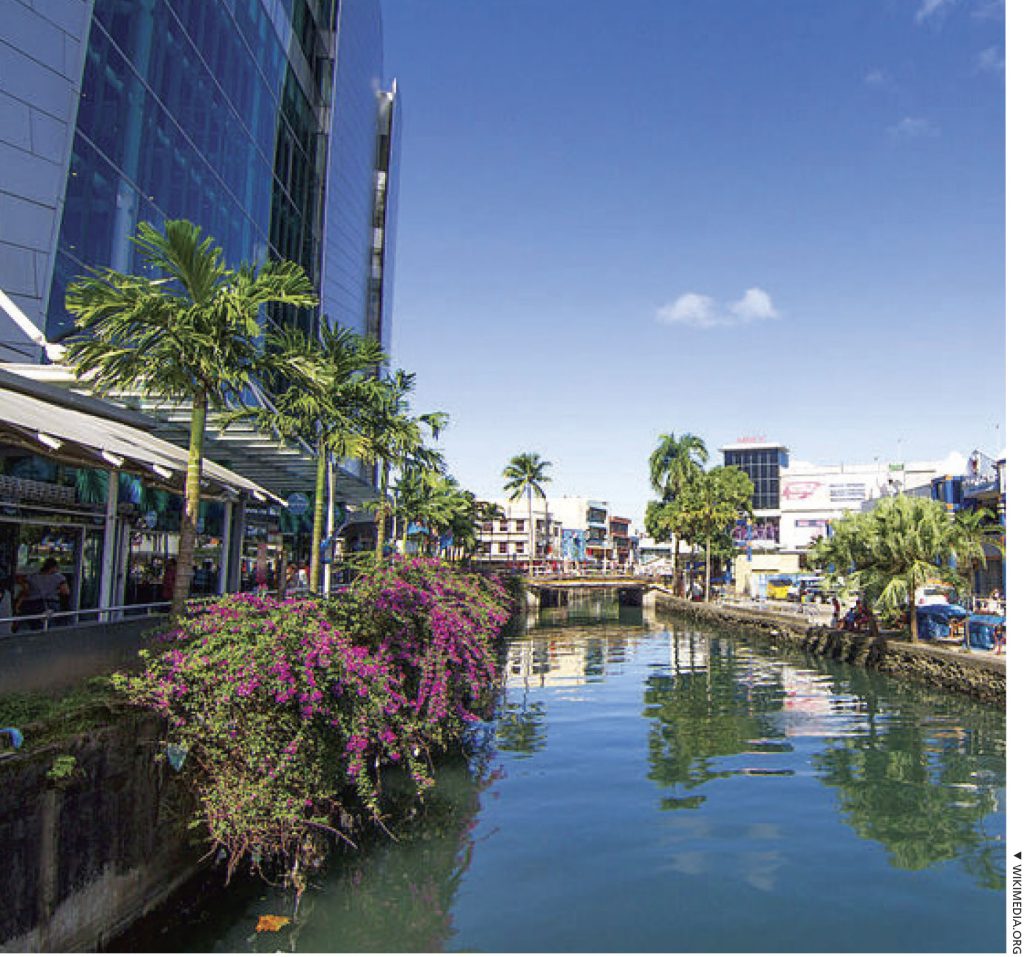Sheraj Obeyesekere
Advancing capital markets

Counting 12 years of corporate experience across industries, Sheraj Obeyesekere is one of the youngest people in the world to lead a stock exchange. As the CEO of the South Pacific Stock Exchange (SPX) – the stock market operator in the Fiji islands – he oversees the stock exchange, and its subsidiaries Central Share Registry and SPX Trustees.
Obeyesekere’s career includes stints in a global banking and financial services knowledge outsourcing firm, a ‘big four’ professional services firm, an Australian managed IT services provider and Sri Lanka Cricket.
Additionally, his capital markets journey began at the Colombo Stock Exchange (CSE) where he progressed from the role of senior executive to the Head of Special Projects.
Q: What unique challenges have you encountered in leading the South Pacific Stock Exchange (SPX)?
A: Fiji’s stock market is unique in terms of its size and limited reach, calling for a more developmental approach to propel the market as a formidable player in the island’s financial sector.
Stock markets that are recognised as frontier or emerging in market classifications – like Sri Lanka’s – already play a broad role in the financial ecosystems of their countries and therefore, are focussed on advanced growth.
As such, there are distinctions in the approaches taken in managing markets based on their maturity.
While a developmental approach involves a more hands-on and involved role for leaders, it also presents an opportunity to introduce market development initiatives, and policy and regulatory reforms, to ensure the market can reach its full potential, which is fulfilling.
Q: And what marketing trends do you think will be influential in the South Pacific region over the next five years or so?
A: In the Pacific region – much like in other developing economies – we are seeing the emergence of digital marketing and brands reaching and connecting with audiences on social media platforms.
In the coming years, we’re likely to see digital allocations in marketing budgets gradually surpass more traditional channels. We are already seeing influencer marketing being actively used by brands in Fiji, which are investing more in expanding and actively managing their digital presence.
This interest in leveraging digital marketing is complemented by the fact that digital penetration in Fiji is improving by the day and the government remains committed to transforming the country into a leading digital economy.

Q: Could you share your thoughts on the outcome of Sri Lanka’s presidential election and the impact on the country’s economic strategy?
A: It was a transformative election with a candidate from outside the traditional parties securing the presidency.
While the mandate was not as decisive as at previous elections, the fact that an outsider has come in indicates that the public longs for change.
This result shows that the Sri Lankan electorate has changed. Since 2015, a large number of independent or floating voters have decided elections and with this, it’s clear that the concept of a traditional party aligned base is diminishing fast.
In terms of economic strategy, the new government should not take any immediate drastic policy decisions that could derail the recovery. The priority should be to continue stabilising the economy in the next 12-24 months, which will give the government a fair opportunity and impetus to aggressively drive its policy agenda.
Q: Do you believe the recent political changes will create a more stable environment for foreign investment in Sri Lanka?
A: Political mandates, regardless of how convincing they may be, have to be converted into consistent and stable policies by the governments that come in.
Sri Lanka had decisive mandates in 2015 and 2019 as well, but both those terms turned out to be extremely politically volatile and inconsistent.
Once again, Sri Lanka was set to have both the executive presidency and parliament established until 2029 by the end of last year, and this should mean political stability. It is up to the government to drive a stable and consistent policy framework in the coming years.
The perceived risk of doing business with Sri Lanka should be addressed with economic progress, and improving other related factors like governance, transparency, and the ease of doing business and repatriating funds, which will complement stability and growth to attract foreign investments.

Q: In your view, how has the global economic climate – including inflation and interest rates – impacted recovery efforts in Asia and the Pacific?
A: Inflation in the immediate aftermath of the pandemic was largely driven by supply chain disruptions and while they have eased, recovery has been slow. Regulators have responded by raising interest rates to curb inflation, seeing some progress.
However, global volatility persists.
The Russia-Ukraine conflict and potential unrest in the Middle East pose serious threats to energy prices and global supply chains, which could severely impact recovering economies in Asia and the Pacific – particularly those that rely on Middle Eastern nations as key trading partners.
Pro-American policies during a Trump presidency could result in trade wars as we saw in his first term and this could bring a certain level of uncertainty.
For smaller economies, external economic shocks can be devastating, as seen during COVID-19. Therefore, it’s critical that these economies proactively structure themselves to withstand such shocks.
Building economic resilience will be crucial for sustaining economic growth in an increasingly volatile world.
Q: Finally, what are the main disruptors that you think the stock market will face in the next decade or so?
A: Crypto and decentralised investments are capturing the imagination of younger tech savvy investors and they’re becoming a major disruptor for traditional stock markets. Stock exchanges are now directly competing with the crypto space for the attention and funds of these investors.
Even though the risks and benefits of both markets are very different, stock exchanges need to embrace more innovative tech driven approaches to attract this new generation. The real challenge is figuring out how to trade crypto related products in a way that is within the rules of traditional stock markets.
Blockchain and AI are also set to shake things up in how stock exchanges operate. These technologies can fast track trade settlements, and modernise how securities and shareholder information is managed, opening huge opportunities to streamline and digitalise processes.
What’s exciting is that this technology is becoming more accessible to smaller exchanges too, thanks to more affordable and integrated market systems. A few years ago, only big players could afford this kind of tech.
In the end, innovation presents both challenges and opportunities for traditional exchanges, which will need to stay flexible and adapt to a marketplace that’s constantly changing.

FACT FILE
FAMILY
Wife – Dilushi
Son – Ranik
Mother – Shyamani
Father – Shiran
Brother – Nadish
SCHOOLING
S. Thomas’ College
HIGHER EDUCATION
Bachelor of Business – Edith Cowan University
PRESENT OCCUPATION
CEO – South Pacific Stock Exchange (SPX)
COUNTRY OF RESIDENCE
Fiji
CITY OF RESIDENCE
Suva
SRI LANKA SWOT ANALYSIS
STRENGTHS
Geographic location
Resilient and enterprising people
Resource and cultural diversity
WEAKNESSES
Lack of long-term national policies driving stability and continuity
Poor governance and accountability at the highest level
Rising national debt and ineffective management
OPPORTUNITIES
Leveraging the growth of South Asia as a region
Driving value added exports
Living up to its potential as a tourist destination
THREATS
Poor policy-making
Increasing global competition in export markets
Global volatility and potential economic implications
